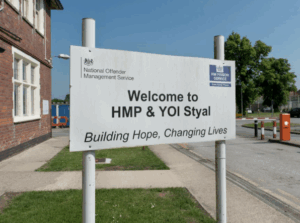The United Kingdom’s gambling industry is renowned for its stringent regulations, a characteristic that has only intensified over time.
In January 2025, the UK Gambling Commission (UKGC) introduced regulations impacting key areas such as financial oversight, game mechanics, advertising practices, and age verification.
Concurrently, the UKGC has amplified its efforts to crack down on casino operators that fail to comply with its rules.
These escalating measures have increased pressure on UK gamers, influencing their gaming behaviour and prompting many to explore alternative platforms beyond the UK’s regulatory reach.
Stricter Gambling Regulations and Their Impact
The UKGC asserts that its strict gambling regulations are designed to protect gamers and ensure fairness.
A notable initiative is the introduction of Gamstop in 2018. Gamstop is a self-exclusion scheme that allows gamers to temporarily ban themselves from playing on UK-registered casino sites.
Gamers in this scheme who wish to resume playing often turn to non-Gamstop casino sites outside the UK.
All UK-registered casinos must adhere to UKGC regulations, including offering Gamstop options on their platforms. Failure to comply can result in severe penalties, as demonstrated by the £95,450 fine imposed on Merkur Slots UK Limited for violating responsible gambling policies.
The strict regulatory environment has contributed to the growing popularity of non-Gamstop casinos, which are perceived as offering freedom from intrusive oversight. Licensed in jurisdictions like Malta or Curaçao, these casinos operate outside the UK’s legal boundaries. They capitalise on this by targeting UK gamers with enticing welcome bonuses, diverse gaming options, and various payment methods, including cryptocurrencies. This strategy effectively addresses unmet customer needs within the market.
However, the absence of UK regulation raises concerns about gaming fairness and player safety at non-Gamstop casinos. This loophole in the UK system allows for potential lapses in consumer protection. For instance, gamers who fall victim to scams or data theft on these platforms have no recourse to the UKGC for resolution, making their choice a risky one.
Financial Checks
The UK gambling regulations in 2025 include financial checks on high-spending players. Online operators are required to conduct light-touch financial checks on players depositing more than £500 in a month, a regulation that took effect in September 2024. By February 2025, the threshold for these checks was lowered to £150.
The Gambling Commission is also conducting a six-month pilot test to refine its financial vulnerability checks, focusing on high-spending accounts.
This pilot assesses collaboration between credit reference agencies and gambling businesses to create effective checks that balance consumer protection with player freedom.
Changes to Game Design
The new rules also affect the design of online gambling games, aiming to reduce the speed and intensity of online gambling, especially for slots and other games where quick results can encourage excessive play. These changes do not include peer-to-peer poker games online, unlike those available in other regulated countries. Starting January 17, 2025, operators must implement restrictions such as:
- Banning autoplay features and other tools that speed up game outcomes.
- Preventing game elements that give players a false sense of control, like ‘turbo’ buttons or ‘slam stops’.
- Ensuring casino games have a spin time of at least five seconds.
- Banning visual or audio celebrations for winnings equal to or less than the stake.
Marketing Restrictions
The regulations address targeted marketing. From January 2025, online operators must enable customers to opt in to marketing about specific products and choose their preferred communication methods. Operators are prohibited from sending advertising to customers who have not agreed to receive it, ensuring players only receive marketing messages of genuine interest.
Retail and Land-Based Venues
Staff in gambling premises must check the age of anyone who appears to be under 25, up from the previous requirement of 21 years, starting August 30, 20241. These checks prevent underage gambling and ensure that players are legally allowed to gamble1.
Industry Voluntary Code
The Betting and Gaming Council (BGC) has introduced a voluntary industry code to address customer checks until the full system of financial vulnerability assessments is rolled out. Under this code, operators assess customers for signs of harm if they deposit more than £5,000 monthly.
Customers depositing over £25,000 in a 12-month period undergo more detailed checks.
Black Market Betting
The UKGC is actively cracking down on black market betting sites. Recent findings indicate a significant increase in UK visits to these sites, with a staggering rise of 522%.
In response, the UKGC has issued 770 cease-and-desist orders to operators and advertisers.
However, many of these sites operate outside the UK, making complete eradication virtually impossible. Determined players can bypass UK restrictions using VPN tools on their devices.
The rise in black market gambling has prompted concerns about player protection and responsible gambling measures, as these unregulated platforms don’t adhere to the same standards as UK-licensed sites.
Key factors driving this shift include fewer restrictions and greater anonymity offered by black market platforms. These sites, however, pose significant risks, including a lack of guaranteed fair play or secure transactions due to their operation outside UK jurisdiction.
A major new study has found that 1.5 million Brits stake up to £4.3 billion on the black market each year. Of this, £2.7 billion is online, and up to £1.6 billion is in underground gambling venues. More than one in five 18–24-year-olds who bet have gambled on the black market.
These illegal operators aggressively target UK customers, significantly undermining player protections while diverting millions from sport and the Treasury.
The vast sums bet on online and offline gambling black market could deprive the Treasury of up to £335m throughout a five-year Parliament.
A survey commissioned by the Betting and Gaming Council (BGC) reported that up to £2.7bn is staked online with black market operators each year in the UK. This translates to 2.1% of the £128bn staked with licensed online operators.
The British Horseracing Authority (BHA) has raised concerns over a substantial increase in visits by UK bettors to unlicensed bookmakers offering bets on horse racing.
According to a report by the International Federation of Horseracing Authorities (IFHA), there has been a 522% increase in unique customers visiting 22 unlicensed betting sites between August 2021 and September 2024.
This growth far outstrips the 49% rise in unique visitor traffic to 10 licensed betting platforms over the same period. Total visitor traffic from the UK to unlicensed betting websites has grown by 131% since August 2021, whereas traffic to legal bookmakers increased by only 25%. As Racing Post reports, an explosion in black market gambling has occurred as unregulated betting site traffic surges.
In comparison, the online gambling landscape in the USA is fragmented, with regulations varying significantly from state to state. Some states have legalised online sports betting and casino games, while others remain strictly opposed. This patchwork of rules has also contributed to a black market, though its nature differs from the UK. In the USA, illegal offshore sites continue to operate, but the primary concern is with illegal bookmaking and unregulated online casinos within states that have not legalised them.
Unlike the UK, as this site reports, where strict regulations on licensed operators are seen as a driver for black market activity, the main driver in the USA is the lack of legal options in many states. The UK Gambling Commission is developing a thorough study of the UK black market to help improve its monitoring.
The Move Towards Online Gambling
The shift of consumers to online gambling has been a gradual and consistent trend, accelerated by the pandemic. Spending has increased more quickly than the number of consumers.
Technology and globalisation have transformed gambling from a localised activity with limited hours to a 24/7 global marketplace.
With 94% of UK adults having internet access in 2021, the transition from in-person to online gambling is unsurprising, mirroring trends in other sectors like online grocery shopping and digital-only banks. Online gambling has become integrated into the broader digital ecosystem, with consumers expecting frictionless play-matching experiences in different sectors.
The move to mobile is evident, with Ofcom data showing UK adult internet users spending four hours online daily, three of which are on smartphones. Commission data from 2021 indicates that 60% of online gamblers have used a mobile phone to gamble.
New Powers for the Gambling Commission
The Gambling Commission has been granted new powers to tackle and block unlicensed black market gambling firms operating in the UK through court orders and collaboration with ISPs. Illegal operators often circumvent player protection requirements, and this move aims to strengthen the regulatory environment, protecting those most at risk.
The White Paper proposes reforming the fee structure for the Gambling Commission, providing greater flexibility to address emerging risks and challenges posed by the industry.
Despite the Commission’s actions against operators breaking the rules, cases of severe financial harm persist, with lives being lost due to gambling harm and addiction.
So What Next?
UK gamers are adapting in diverse ways, balancing entertainment and safety. Some prioritize safety, preferring UK-registered casinos that adhere to strict gambling policies, protecting them from unfair gaming practices and ensuring robust security features. These casinos also comply with the General Data Protection Regulation (GDPR), the European Union’s standard for data protection and security.
Others prioritize entertainment, opting for international platforms like non-Gamstop casinos and offshore betting sites. With fewer restrictions, they can access a wider range of entertainment options.
Gamers wishing to take a break can participate in the UK’s Gamstop scheme. Increased awareness of the scheme has led to over 532,000 registrations since its inception, with some opting for auto-renewal every five years, representing more than 1% of the UK’s adult population.
Conclusion
Ggambling in the UK is undergoing significant transformation as regulatory pressures continue to mount in 2025.
The UK Gambling Commission’s unwavering commitment to protecting players through stringent regulations reflects a broader societal concern about gambling addiction and the potential for harm. While these measures aim to create a safer environment for gamers, they also inadvertently push some players toward unregulated platforms with considerably higher risks.
As we have seen, introducing initiatives such as Gamstop and enhanced financial checks demonstrate the UKGC’s proactive approach to safeguarding vulnerable players. However, these very protections can lead to unintended consequences as players seek alternative options that offer fewer restrictions and a greater sense of freedom.
The emergence of non-Gamstop casinos and black market betting sites highlights the complex relationship between regulation and player behaviour.
For many, the allure of unregulated platforms lies in their extensive gaming options and the promise of anonymity and less oversight.
The stark increase in black market betting activity—especially among younger demographics—raises critical questions about the effectiveness of current regulatory measures. With a staggering 522% rise in visits to unlicensed sites, it is clear that many players are willing to take risks that undermine their safety and security. This trend mirrors challenges faced in other jurisdictions, particularly in the USA, where inconsistent regulations across states create a fertile ground for illegal gambling operations. As this site reports, the lack of uniformity in U.S. gambling laws has led to a similar proliferation of black market options, as players seek out more favourable conditions that legal platforms may not provide.
Moreover, the ongoing battle against black market operators underscores the need for robust enforcement mechanisms and international cooperation. The UKGC’s efforts to issue cease-and-desist orders represent a step in the right direction, but the reality is that many illegal operators remain just out of reach. This situation calls for innovative solutions that enhance regulatory frameworks and address the root causes driving players toward unregulated venues.
Looking ahead, regulators, operators, and stakeholders within the gambling industry must engage in meaningful dialogue about balancing player protection with entertainment value. As consumer preferences evolve, so too must regulatory approaches.
There is an opportunity for collaboration between licensed operators and regulators to develop more flexible frameworks that accommodate responsible gaming while still providing an engaging experience for players.





































